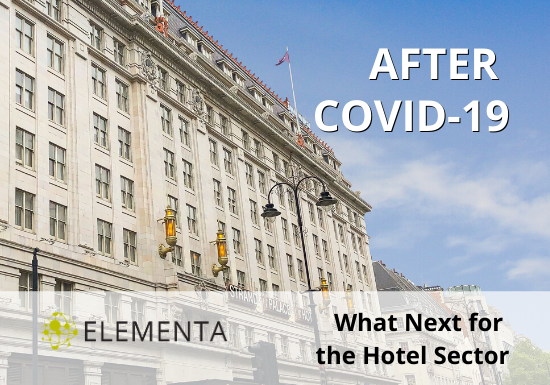
Principals and hotel sector leaders David Glossop and Rob Harris offer their insights on what to expect from the industry post-COVID-19
The hotel industry has been one of the hardest-hit from the COVID-19 pandemic. Hundreds of hotels have closed temporarily, if not for good. Those that remain open are recording record low occupancy.
There are three things to consider regarding the hotel industry recovery:
- Supply and demand – pre and post-pandemic
- How will the survivors survive?
- What do customers want now?
Supply and demand
In recent years, there has been a reported 30-40% shortage of hotel beds in London. According to the PwC UK Hotels Forecast 2019, this was due to the continuing boom in overseas leisure travel. This shortage has meant high occupancy numbers for existing London hotels. If hotels financially break-even somewhere below 50% occupancy, hotel room demand will not have to return to pre-pandemic levels for the hotel industry to be out of trouble.
How will the survivors survive?
However, some hotels have already closed their doors permanently with more likely to follow. With depleted resources and looking for ways to recoup their losses, surviving hotels will rebrand or reposition themselves in response to shifting customer demographics. It is unlikely that the market will return to its previous form. UK residents choosing to vacation domestically could replace International business customers, or regional hotels could fare better by attracting customers who would normally stay more central. Access to fresh country air and space will become a key selling point.
There will also be many changes in ownership or management. With interest rates and the value of the pound at record lows, this offers an opportunity for investors who are less risk-averse to take advantage of the dip in the economy to enter the market or reposition through renovation and remodelling.
What do customers want now?
Customers are going to be more concerned about the cleanliness of their accommodation. The definition of clean is going to change. Higher standards will become the norm and hoteliers will have to demonstrate how clean they are.
There has already been an industry shift towards air purification in hotels. Manufacturers like Panasonic have produced a new fan coil unit that has UV filtration to purify the air as it flows through, killing any microscopic germs. Other manufacturers are developing products such as temperature scanners to identify people with higher temperatures and anti-microbial wall coverings.
The hotel industry will need to cater to the lowest common denominator, customers concerned about disease transmission, and those with pre-existing medical conditions. Removing the fear of infection from society may take longer than eradicating the virus itself.
The hotel industry may recover sooner than expected. For those of us in the construction industry, changes in ownership, repositioning, and the utilisation of new technology offer opportunities to innovate and a faster return to business as usual. Survival is about adapting and evolving with an ever-changing landscape. COVID-19 has forced change much faster than normal, an agile and innovative response will lead to the best outcomes.
Elementa Consulting have been at the forefront of implementing health and wellbeing strategies into projects. Openly embracing wellbeing and sustainability standards like WELL and Fitwell to ensure buildings are not just carbon-neutral ready but also people-ready. The culture of healthy buildings is only going to become more important as we move beyond these difficult times.
To learn more, please reach out to David Glossop or Rob Harris.
